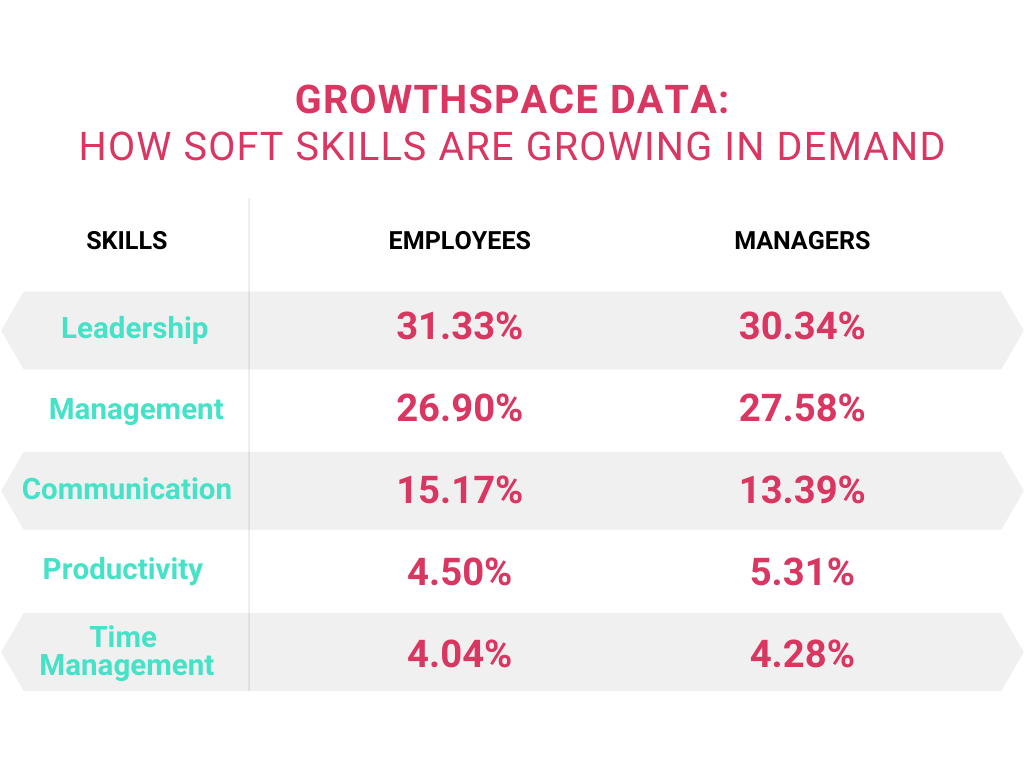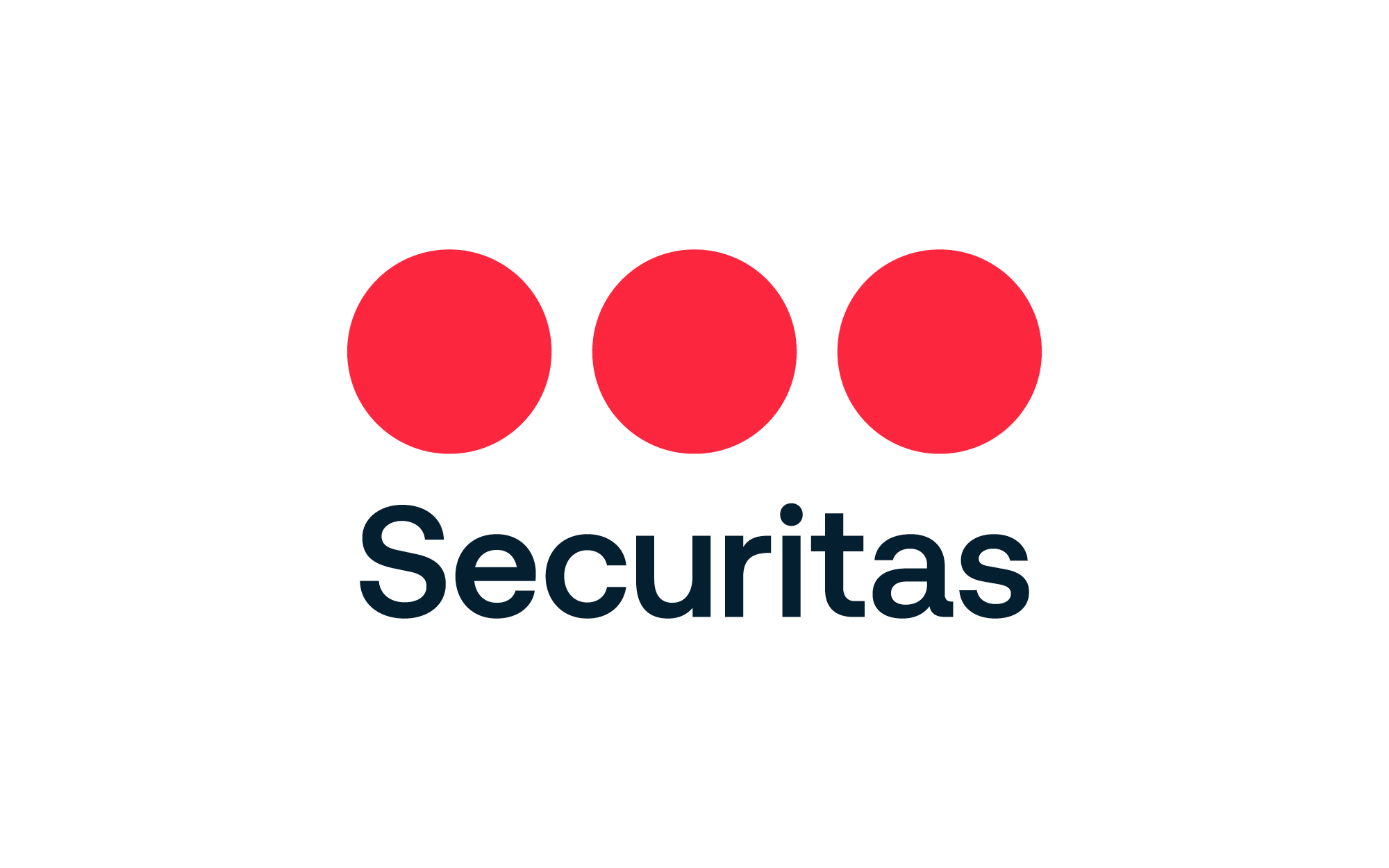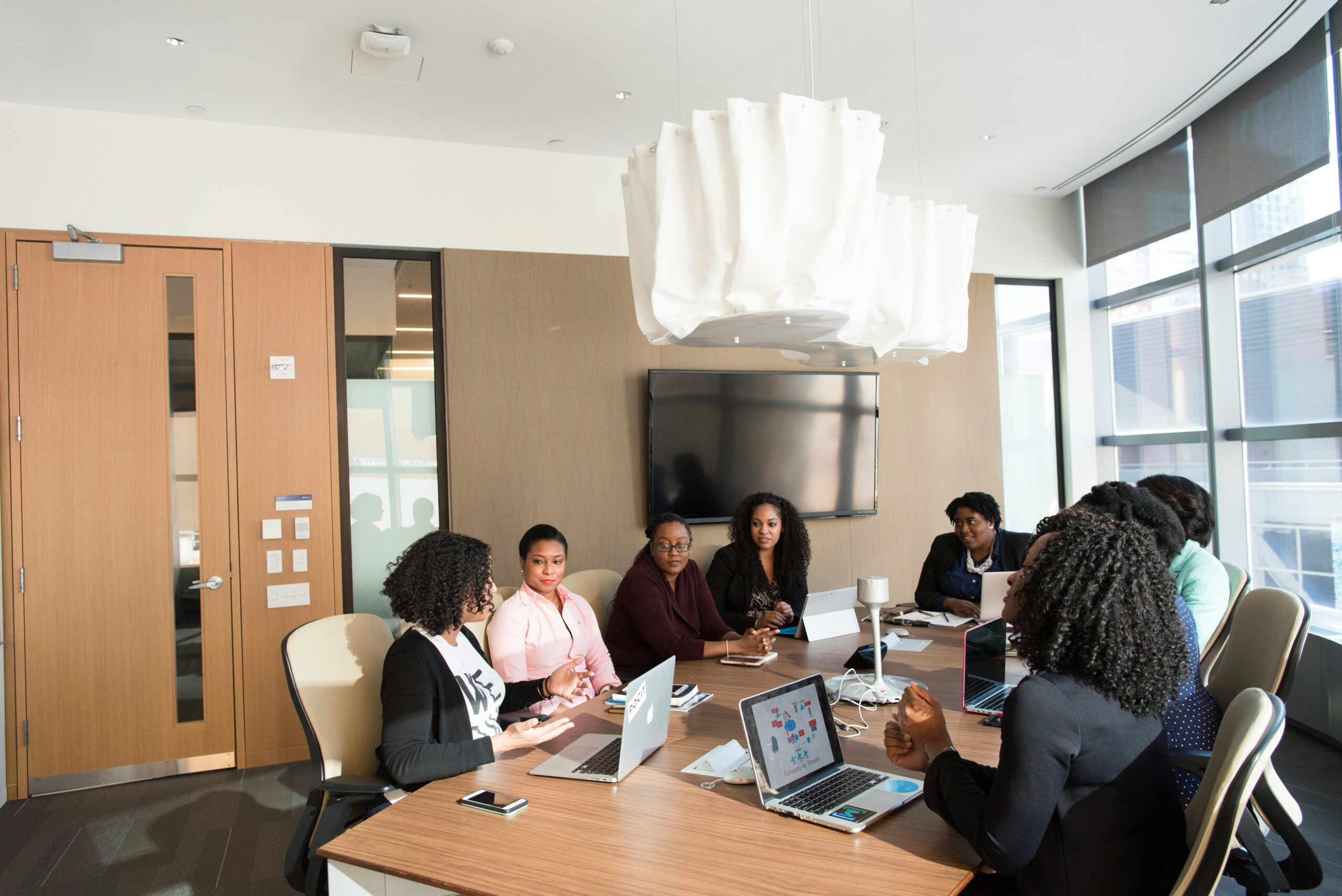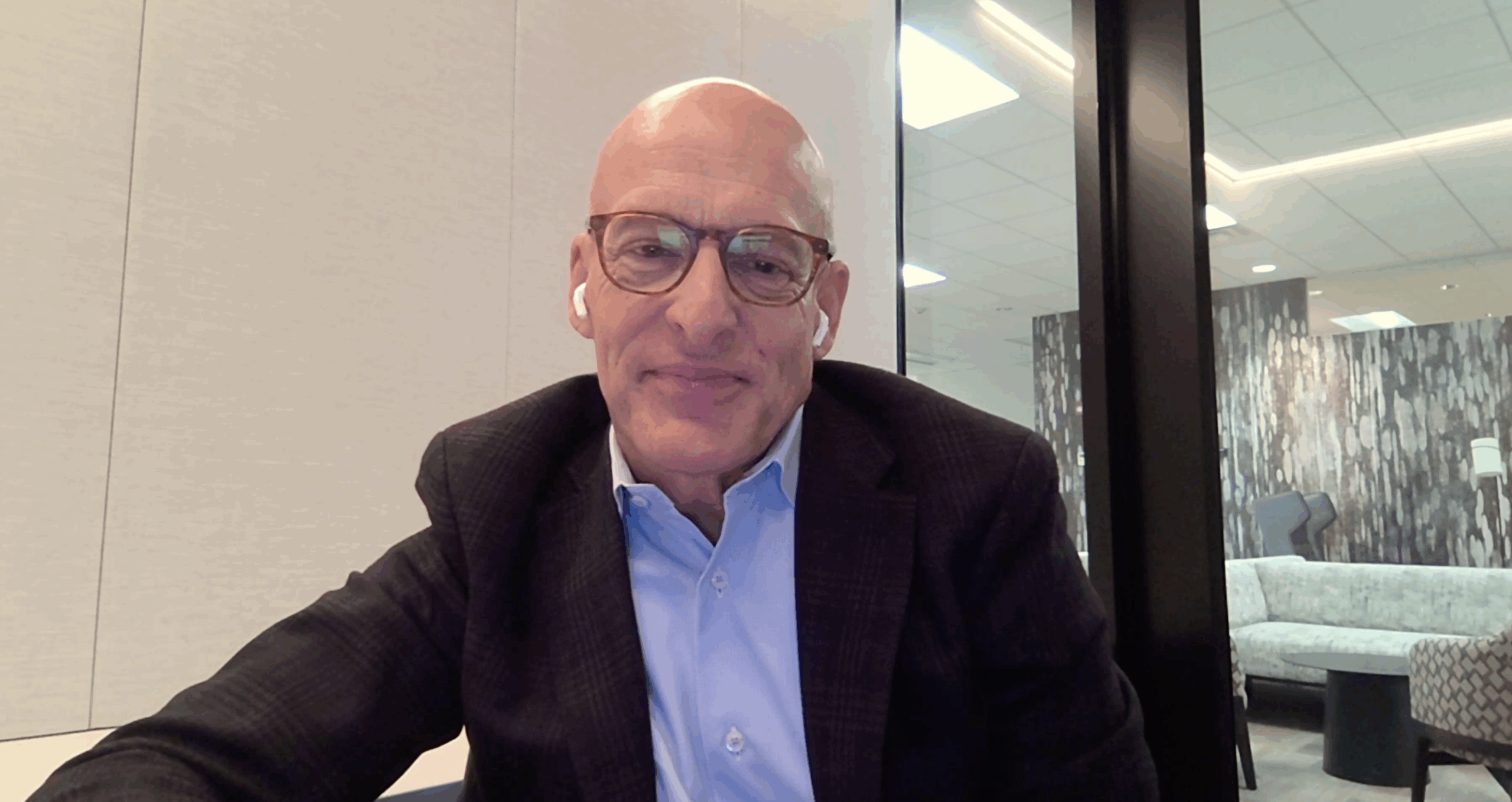|
Getting your Trinity Audio player ready...
|
It’s time to think about New Year’s resolutions, and with them, professional aspirations for 2024. With all the volatility of today’s reality, the type of soft skills employees need for success is changing fast.
Which soft skills are most in demand? And what steps can you take to ensure that skill gaps are minimized–or better yet, eliminated? GrowthSpace has compiled lists from managers and employees on the top skills they seek out and the numbers show how important soft skills are today. While Leadership and Management still take the lead, Communication is becoming increasingly important in the changing workforce, along with Productivity and Time Management.

Communication
Communication is a given for nearly any job, but good communication is a vital skill – especially considering the new communication channels organizations now depend on to get work done. “Communications” is actually one of the most complex soft skills because it covers such a wide range of elements. Communication skills can be broken down into three major areas according to who, where, and how:
Who?
Communication involves superiors, coworkers, subordinates, and clients. Each of these groups requires a different style of communication, not only for reasons of propriety, but also for informational needs. For instance, a production line manager would describe a product in one way to a line worker, and in another way to a visiting executive. We need to learn how to best communicate the right information in the best way for the person we’re talking to.
Where?
Professional communication nowadays can happen in almost any place: in meetings, during casual discussions, through email, on Zoom, or even through WhatsApp. Each medium has its own rules and best practices, and knowing how to use each platform to communicate properly is becoming more and more important.
How?
Spoken, written, body language, facial expression, and even listening are all forms of communication. Within each of these elements, there are more components. For instance, spoken communication can be informal, presentational, instructional, and so on.
Productivity
Very few employees master all of the elements of professional productivity, so even your top performers will benefit from a skills refresher course. Like communication, “productivity” is a term that should be further defined so that an employee’s areas of weakness can be understood and mitigated:
Focus
This has never been a greater challenge than it is today, with so many devices competing for our attention. However, concentrating on the job at hand goes beyond turning off the phone, because inner distractions also take their toll. Nowadays, taking breaks is seen as a ‘productive’ behavior because it allows people to regain focus.
Organization
There was a time when organizational skills would mean color-coding file folders. But today, with so much data coming at us through all kinds of media, it can be quite difficult to read, store, and find information when we need it.
Mindfulness
There are many reasons why we say “yes” to a task when we really shouldn’t. Mindfulness is the skill of being ‘aware’. In a professional situation, it means knowing how to immediately assess your tasks and take on only what you can reasonably handle.
Time Management
In contrast to mindfulness, time management is the skill of putting your current tasks in order of importance according to the time they will take to complete. This is not just a matter of scheduling. Employees must also factor their tasks according to organizational needs, effort requirements, and the extent to which other stakeholders must contribute. Thankfully, there are a variety of means and ways to improve an employee’s time management capabilities:
– Professional software packages like Monday.com, Asana, and Todoist all have components to help handle task allocation and collaboration.
– Methodologies such as the Pomodoro Technique, the Important-Urgent Matrix (based on the habits of US President Dwight Eisenhower), and even “Eat that Frog” were all developed to assist people with organizing their time, and have professional applications.
– Routines that remind us of priorities can be simple ways of making time management a habitual practice. Simple steps like making a handwritten list can be better than depending on a smartphone alarm, which can get muted or swiped away.
SkilIs Aren’t Static
So now you’re up to date on which soft skills are hot (and which are not) for 2023. But what about 2024, or even the second half of next year? If COVID has taught us anything, it’s that employee skill requirements can change overnight. For anyone involved in L&D programs, perhaps the most important skill is to know how to keep skills up to date in such a situation.
Keep track of skill changes dynamically
What’s true today might not be true in a few months. The only way to know about recent changes in business skills is to constantly monitor your environment. This means recommendations from employees at all levels, who see new skills emerging in their day-to-day work; your company’s strategic department, which might be developing a new direction that will require adaptation; and industry trends, where recent technology improvements and fresh ‘skilling’ approaches might appear.
Implement effective coaching programs
New skills mean new sorts of learning, but not every coach is up to date with the most cutting-edge concepts. Similarly, as illustrated above, skills can be broken down into a large number of elements. The instruction of each element requires a coach who is an expert in that area. But, even today, many organizations have difficulty in translating loosely defined skills into elements and then sourcing the right coaches. Perhaps this is one of the reasons why only 30% of organizations feel they have the necessary skills for the future.
Build new skills and boost existing ones with an L&D platform that’s driving growth at some of the world’s largest organizations. Growthspace’s scalable, technology-based approach enables soft skill development through one-on-one coaching with the best communication experts available. Contact us today to learn more – and get your employees learning more too.




